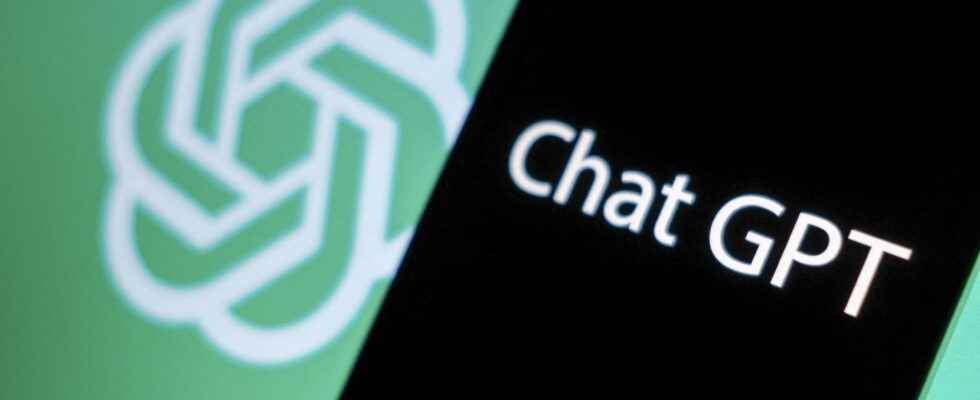A few years ago James Rosone, an American author of techno-thrillers, published Monroe Doctrine, about a war between China and the United States. In the story, American defenses are quickly annihilated by Chinese cyberattacks. But what makes the difference is an extraordinary capacity of China to anticipate the decisions of the American general staff thanks to an artificial intelligence which collected and analyzed the smallest biographical detail of all the senior American officers.
February 2023. Driving to an appointment at the Pentagon, Nicolas Chaillan passionately explains his project, which is reminiscent of the magical AI of Monroe Doctrine. The idea of the one who was responsible for the software of the US Air Force: stuff ChatGPT with a multitude of information to make it a powerful decision-making tool. He has just created a start-up with this objective, Ask Sage : “We have injected the biographies of Chinese military leaders, and all the possible details, career, training, specialties, networks, personal life, tastes…” It is a question of connecting disparate elements so that on a given subject emerges an image clear from the weak signals that ChatGPT will be able to collect and above all to connect between them. Example (ultra simplified): the American intelligence services know nothing about the Qiangzhan (“Seize” in Chinese) project, but ChatGPT locates a group of soldiers attached to the three branches of the People’s Liberation Army at the intersection of which are China’s military space forces. Around them gravitate ultra sharp specialists. Over the connections, the puzzle is built and reveals new information on an anti-satellite program.
In the case of Chinese military profiles, the idea is that Ask Sage’s interface can be interrogated in natural language and that it restores a rich synthesis of connections between heterogeneous elements, for example around a military project – a job that would have required weeks of work for an analyst from the Defense Intelligence Agency. Obviously, the more precise the biographical data, the better the restitution will be. Eventually, the Ask Sage application will be classified and fed by American intelligence agencies.
Ask Sage is also targeting the military supplier market. He ingested tens of thousands of (won) contracts and bid responses on behalf of the Pentagon; Logically, the bot will be able to generate proposals with the best chance of winning.
Contracts, analyses, presentations…
Limiting the use of ChatGPT to the closed environment of a company eliminates a large part of its drawbacks. Because the great weakness of ChatGPT is that it handles the chaos of real life very badly. Based on the 500 billion words he has been fed, he only offers a statistical approach allowing him to determine the most likely word to complete a sentence in a given context. He does not understand the meaning of the words, he only assumes. But his ability to produce a syntactically correct paragraph without fail gives him the peremptory character of knowing. This does not prevent him from making mistakes often, because he will search in the space of the mathematical vectors in which he has translated these heaps of texts the closest answer without worrying about the source or the truth.
In a series of fascinating essays, Gary Marcus, professor of psychology and neuroscience at New York University, sums up the problem with a pithy formula: ChatGPT does not is lying not, because the lie supposes going against an established truth, it canister with the absence of moods specific to machines, with the sole purpose of providing a statistically acceptable response. Moreover, those who develop applications on the OpenAI text generator regret that it is unable to admit its ignorance on a subject. “ChatGPT works like a consultant, summarizes Christophe Tricot, creator of the start-up forge. He has the varnish of general culture and the confidence. So he inspires confidence. He can come out with nonsense, but it passes, because it is plausible.
In the company, the environment is standardized, known and reliable. It is made up of emails, memos, contracts, studies, calls for tenders, proposals… With its formidable memory, ChatGPT is able to ingest all this knowledge and transform it according to a request. This concerns both lawyers and communication agencies. “In a professional environment, most of the time is spent translating ideas into text, continues the CEO of the Forge. I send an email to a client, I write a memo, I have formal elements around which I brode. In my company, I use ChatGPT daily for this. I recently demonstrated to my investors by asking ChatGPT to generate an email for them to send them information about the company. They were amazed. We also do tests in health by transforming a medical examination report into a text accessible by the patient.We then have the best of both worlds: at the start, the impenetrable jargon of the doctor, reliable and rigorous, at the end, precise and useful for the patient, which is even easy to make reassuring…” The big risk, notes this holder of a PhD in artificial intelligence, is a massive impoverishment of exchanges; we will send each other the same e-mails, the same memos, with a uniform presence on social networks because it is automated. That, he notes, is the worst of all worlds.
